MirandaNet Core Team |
Professor Christina Preston.
MirandaNet Founder and Director of Innovation
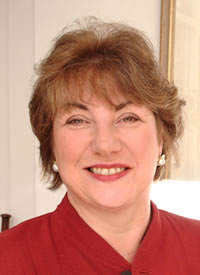
Professor Christina Preston
Dr Christina Preston has been at the forefront of education and technology for over 25 years. She is associate Professor of Education at De Montfort University in the new Institute for Education Futures. The MirandaNet Fellowship that she founded in 1992 has become a global thought leader in edtech with over 1,000 members in 80 countries and an outreach of more than 72,000 website visitors a year. The members research into the impact of technology and learning in classrooms and report on their findings for the global community. They also run practice-based research professional development programmes in schools when the practitioners become co-researchers.
Christina has won 5 international awards for her contribution to education innovation and community of practice development. She is also the Chair of Trustees of World Ecitizens charity established by the MirandaNet Fellows in 2002 after the events of 9/11 in New York. This charity provides a web space where learners across the world can publish for an international audience. A more detailed professional profile is here.
| DMU Staff Profile | LinkedIn | Twitter | YouTube |
![]()
Professor Sarah Younie
Director of Research
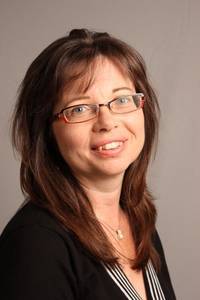
Dr Sarah Younie
Dr Sarah Younie is Professor of Education Innovation, and Co-Director of the ‘Institute for Education Futures’ at De Montfort University. She has been involved in international research and teaching for over twenty-five years, covering digital technologies in educational settings for UNESCO, EU, UK Government Agencies, Local Authorities, educational charities and other funders. As the UK Chair of the national subject association of IT in Teacher Education (ITTE) she has conducted research for submission of evidence for the Parliamentary Select Committee Inquiry into Education.
Having published widely on educational technologies, she is currently the Editor-in-Chief for the international Journal of ‘Technology, Pedagogy and Education’. Prof Younie’s books include ‘Teaching with Technology: the essential guide’; ‘Debates in Computing and ICT’; ‘Teaching and Learning with ICT in the Primary School’. Prof. Younie is a founder member of MESH (Mapping Education Specialist knowhow) and the Director of Research for Mirandanet.
![]()
David Longman
Content Editor
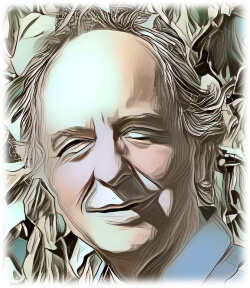
David Longman
Once upon a time David was a lecturer in teacher training and a subject leader for ICT. He has worked with a wide range of students and courses including undergraduate and postgraduate teacher training (primary and secondary), MA courses and is currently a second supervisor for a PhD student. David has developed many programmes and modules, (including an online programme), schemes of work and assessment frameworks to meet a range of needs and levels of education for students in ICT, computing and education. He manages the MirandaNet website and the membership list and does some editorial work for MirandaNet documents and publications.
![]()
Theo Kuechel
MirandaNet Newsletter Editor

Theo Kuechel
An educational consultant and MirandaNet Senior Fellow, Theo writes and co-edits the Newsletter, alongside David Longman. He is active in maintaining MirandaNet’s social media presence and was involved in developing the MirandaMod unconferences.
Theo’s work and research covers digital literacies, visual communication and open educational resources and practice. His expertise is in digital content, archives and visual literacy. Theo also has specialist knowledge of copyright in education including the use of Creative Commons licenses. He has given presentations and workshops around the world and has participated in major national and international digital projects. Theo developed a number of courses in digital media at the University Hull and for Naace. He has been invited to advise Qatar education ministers on a strategy for educational digital content and is a princial author of the MeshGuide on Visual Literacy.
Currently Theo is developing a toolkit designed to help Schools, Colleges and Higher Education harness the affordances of Open and Public Domain content for learning.
![]()
Jon Audain
MirandaNet Journal Editor
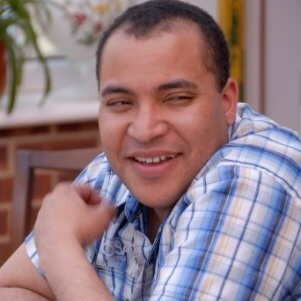
Jon Audain
Jon is currently a Senior Lecturer in Primary ICT and Music at the University of Winchester. His area of expertise is working with and mentoring teaching students with a focus on ICT, Educational Technology and music. He has worked as a VLE/Learning Platform Consultant within Hampshire and is a former county-based Advanced Skills Teacher (AST) specialising in Primary ICT, where he supported primary schools across Hampshire.
As an experienced primary teacher Jon and regularly spends time in schools, teaching and supporting staff and children. He frequently works as an ICT consultant, freelance writer and Promethean trainer across the UK.
Within music, Jon works as a freelance musician and conductor. He performs in a range of different ensembles from saxophone ensembles, rocks bands through to a flute, oboe and piano trio. Jon previously worked for Hampshire Music Service as a Listen2Me instrumental teacher and still teaches for Portsmouth Music Service as a woodwind teacher.
![]()
Rob Ellis
MirandaNet Web Editor
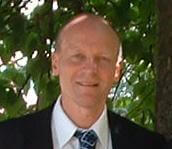
Rob Ellis
Rob has wide experience in education having been a teacher for 30 years leading mathematics, history, computing, data management as well as pastoral care for 100 children. At one point these responsibilities were simultaneous. He even had one very happy experience of Ofsted!
Amongst other things he has an MSc in computer based learning and training and a diploma in mathematics education (with distinction).
While teaching and working for his LA as Educational Transformation Project Manager and advisory teacher for mathematics he worked on a number of national research projects before forming his own company working with schools, local authorities and private companies in the education sector. Today he is still self-employed and does a lot of online safety work as a CEOP Ambassador.
His main interests include how education can transform to meet the needs of a new century and on a more immediate level digital storytelling as a way for learners to demonstrate their learning. He has also long been interested in the aspects of digital literacy that have become known as ‘fake news’. More recently he has been looking at reviving the idea of using programming to enhance mathematics as it was back in the 1980s with the BBC micro.
![]()
John Sibbald

John Sibbald
John has nearly thirty year of experience teaching and leading in North Manchester secondary schools. Ten years were spent working at the North West Manchester City Learning Centre researching the effective use of new and emerging digital technologies and how these impact on teaching and learning. In April 2010 he joined the team at Manchester Communication Academy in Harpurhey, leading on the development of the new Computing curriculum, digital skills, the ICT strategy and staff effectiveness and performance in the use of technology.
Since leaving teaching in the Spring of 2017 he has been working with the following partners:
- Tute Education Ltd – creating a set of virtual teacher standards, developing lesson review protocols and improving online teacher effectiveness.
- Creative Scene, North Kirklees – digital engagement strategy with hard to reach communities and the effective use of digital technologies in the artistic process.
- Greater Manchester Combined Authority – working with schools, colleges, industry and other partners on developing and evaluating a digital talent pipeline strategy.
- University of Salford and Create Education – evaluating the Morson Engineering Challenge, a 3D printing, additive manufacturing project in nine Salford secondary schools.
- The Ideas Foundation – supporting pupils in four secondary schools in creating resources for peers as part of a digital leadership framework. This includes digital critical literacy, digital resilience and digital curatorship.
- Manchester City Council High school audit. Working with thirty-six secondary and secondary SEND schools on evaluating and developing their digital offer – computer science, digital literacy, digital specialist and life skills.
John is passionate about how we can harness technology to improve learning, teacher effectiveness and student outcomes including the development of digital literacy, digital work-life skills and specialist digital skills.
![]()
